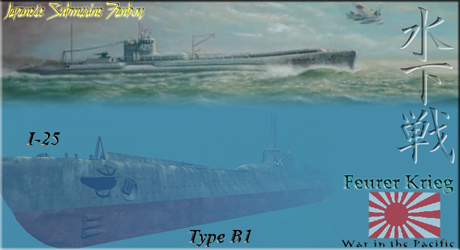obvert
Posts: 14050
Joined: 1/17/2011
From: PDX (and now) London, UK
Status: offline

|
quote:
ORIGINAL: Crackaces
quote:
In this game I used too much fuel and supply in several ways:
1. I ran the KB all over the Pacific, raiding Sydney several times as well as Perth, and kept it on station in the New Hebrides and Santa Cruz Islands for much of 42, and in the Solomons for a lot of early 43.
2. I ran too many resource convoys in extremely distant locations including from Port Headland, Nauru and Ocean Island, not realizing the real glut of accessible resources closer.
3. The supply expenditure for forts, ports and field building was overly ambitious. I hadn't realized the real costs of this build-up, and much of it turned out to be unnecessary anyway. In future I would rely more on reserves with plentiful supply and some well built nodes with high forts, but even most important defensive bases would be left at level 2-4 fields and level 1-2 port with no higher than level 4 forts.
4. The extended time in Burma with a large army and air force used enormous amounts of supply, and I could have pulled more back sooner. Losing the large army in Thailand probably saved supply in the long run, but led to a quicker Allied advance as well.
5. I know the expansion of the R n D and air factories eventually eclipsed what is prudent. I would streamline next time not for tactical reasons, as I like having the many different models, but for economic reasons. I would also simply put up with not having the best aircraft always available at the earliest possible date.
In my opinion, as a AFB the very astute observations you make here are keys to victory. Your game is unique in that it actually has made it to the late stages.
But I think your observation about the KB running all over the place is especially keen.
It is in my perspective the typical IJ game move the KN around "punishing" the Allies and keeping offensive initiative.
But like that like spending a 401K account, the reckless expenditure of resources only becomes apparent in the late game.
At the time, in my second PBEM (the first lasting all of 8 weeks in game) I though I was being pretty conservative. I didn't go for Fiji, Ceylon, OZ or India proper. I didn't run the entire IJN to Tahiti like I did in my first PBEM (  ), and I tried to use cruise and patrol stationary a lot of the time when possible. Still, now only can I understand some of these things better, as you say. ), and I tried to use cruise and patrol stationary a lot of the time when possible. Still, now only can I understand some of these things better, as you say.
quote:
I also agree with your observations about Burma. The game mechanics are especially "interesting" in that the Allies can
support an offense across the Irrawaddy Valley and the IJ have unique ahistorical considerations.
Your game also demonstrated that the IJ cannot build up everywhere and must have an overall plan to invest in defenses ...
I am suspecting that this game will change IJ strategies from this point forward.
The building was the bigger problem in my understanding now. This is something I've never seen discussed before now, though. I have yet to estimate the costs of building ports and fields, but I think much of that was unnecessary and hugely expensive. If I had had all of the Chinese industry for the entire game from 42 it might have been slightly offset, but I had no real understanding of the costs of building so I couldn't necessarily restrict it to prudent levels.
The overall plan of frontline defenses was in place, but due to a few tactical fizzles and mainly the exponential level of Allied capability improvement in 43-44 the scrambling cost me more in having to pull back from good positions, trying to quickly (and with less planning) beef-up secondary and tertiary defenses, and to sometimes overly invest in areas that were ultimately not worth the efforts. It would be very different with the pace slowed in a Babes mod with Stacking Limits that would curtail massive stacking of late-war Allied stuff to get any single point very quickly. I know with supply expediture they could still do some of it, but not as much, surely.
So as I move forward I'll try to calculate the cost of base construction projects and add that into the mix. Hopefully by the end there will be a clearer picture of what is possible on the Japanese side for a long war.
_____________________________
"Success is the ability to go from one failure to another with no loss of enthusiasm." - Winston Churchill
|
 Printable Version
Printable Version









 ), he's said all along he wants to see what happens in the end game. It's not until the end do you see how all those decisions you made years ago come into play and what to do differently next time.
), he's said all along he wants to see what happens in the end game. It's not until the end do you see how all those decisions you made years ago come into play and what to do differently next time.









 ), and I tried to use cruise and patrol stationary a lot of the time when possible. Still, now only can I understand some of these things better, as you say.
), and I tried to use cruise and patrol stationary a lot of the time when possible. Still, now only can I understand some of these things better, as you say. 

 New Messages
New Messages No New Messages
No New Messages Hot Topic w/ New Messages
Hot Topic w/ New Messages Hot Topic w/o New Messages
Hot Topic w/o New Messages Locked w/ New Messages
Locked w/ New Messages Locked w/o New Messages
Locked w/o New Messages Post New Thread
Post New Thread